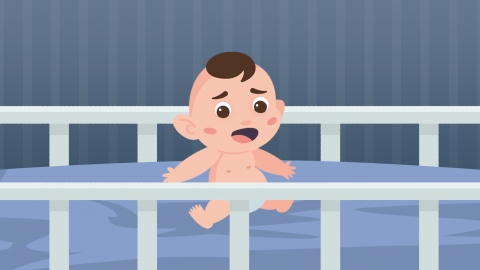What should I do if a 4-month-old baby has a cold and cough?
Generally speaking, a cold refers to an upper respiratory tract infection. Coughing caused by an upper respiratory tract infection in a 4-month-old baby may be related to factors such as low immunity, environmental factors, improper care, pathogen infection, and allergic reactions. It is recommended to seek timely general or drug treatment based on the specific cause. If the baby shows any discomfort, prompt medical attention is necessary. Detailed analysis is as follows:

1. Low Immunity
A 4-month-old baby's immune system has not fully developed, and when immunity is low, it may lead to invasion by external factors and pathogens, thereby causing coughing. Immunity can be enhanced by ensuring adequate nutrition intake and continuing breastfeeding.
2. Environmental Factors
If the environment where the baby resides is too cold or too hot, or if the humidity is inappropriate, it may affect the baby's respiratory health and result in coughing. The living environment should be improved promptly, with indoor temperatures maintained at approximately 22–24°C and humidity kept at 50%–60%.
3. Improper Care
For example, inappropriate clothing for the baby, such as overdressing or underdressing, may lead to the baby catching a chill, thus triggering coughing. Appropriate clothing should be loose-fitting, breathable, and avoid overheating.
4. Pathogen Infection
Cough caused by upper respiratory tract infection is often related to bacterial or viral infections. In such cases, appropriate medications should be used based on the type of causative bacteria, such as azithromycin granules, cefaclor dry suspension, or pediatric cough syrup, following medical advice.
5. Allergic Reaction
Repeated exposure to allergens can also irritate the upper respiratory tract, causing symptoms such as coughing and skin itching. It is important to avoid the allergen promptly and follow a doctor's instructions for treatment using medications such as cetirizine hydrochloride syrup, dextromethorphan hydrobromide syrup, or dexamethasone sodium phosphate injection.
When a baby develops infectious cough due to an upper respiratory tract infection, it is important to first understand the underlying cause and the severity of the condition before choosing an appropriate treatment method. At the same time, parents should closely monitor the baby's physical changes to allow timely and targeted interventions.









